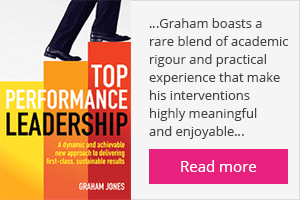Exposed to threat, human beings exhibit the fight-or-flight response, which is a physiological reaction that occurs in response to a perceived harmful event, attack, or threat to survival. The reaction is activated by the autonomic nervous system, which primes the animal for fighting or fleeing. This is particularly useful in former eras when threats were more physical than cognitive. This instinctive reaction kept us alive through the Hunter-Gatherers, Nationhood and Empires eras through to the agricultural, industrial to the current post-modern information era. Increasingly the threat is cognitive – our capacity to comprehend on a global scale. So how do we respond? Our evolutionary survival mechanisms provide us with limited resource in adaptation. Indeed, Neumann in the mid-1950s spoke of “ever accelerating progress of technology and changes in the mode of human life, which gives the appearance of approaching some essential singularity in the history of the race beyond which human affairs, as we know them, could not continue”, which he called singularity. Current predictions place this in around 2040. At least fight-or-flight infers a decision. Our biology remains instinctive, but what happens if increasingly the rarely mentioned third F of the hyper-arousal or acute stress response comes increasingly into play: freeze. We are flat earth thinkers in a global world. As problems extend beyond our horizons, we find it increasingly difficult to make decisions. When the problem drop away from sight, off the edge of our horizons, our world, we seem surprised that, unseen, it comes back to bite us in the arse.
The term VUCA has emerged in recent years to describe today’s world: Volatile, Uncertain, Complex and Ambiguous. This, to my mind, is a mixed message. Uncertainty describes our response or relationship with not knowing. Volatility, Complex, Ambiguous are the context of the knowledge itself. But how does this apply to the leader? Increasing globalisation and inter-connectedness presents the modern leader with the problem of what I define as the 5 S’s: Speed, Scale, Scope, Simultaneity and Surprise. The speed of change that leaders are experiencing is increasing. With computerisation, developing infrastructure and technology (air travel etc), information flow has become instantaneous. Whatever happens on one side of the world affects the other with an immediacy not encountered by previous generations. Today, the scale of our issues is now global. The world is no longer an infinite resource. With a predicted 9.2 billion people by 2050 with increasing lifestyle expectations (accelerated through the aforementioned connectivity), the world is now a limited resource from energy to water to food. The scope of change during recent years strikes at the very heart of society, questioning fundamental assumptions deeply held. Institutions such as governments are creaking under the pressures of the acceleration of knowledge and new technologies, creating ethical and moral dilemmas unimagined by previous generations such as cloning, stem cell research, gender reassignment, sexual orientation (the acceptance of homosexuality in the Western world has been one of the fastest cultural changes in history). And all these effects are happening simultaneously. No longer can issues be dealt with in isolation. We are in the era of wicked problems. All the more so when mid-range predictions place convergence in around 2050 when the BIG problems come together in a tsunami. These increasingly expose the modern leader to the final S, surprise. Even those at the lower organisational levels must expect the unexpected: more frequent, more extreme surprises.
So what can we do about it; how do we future proof our leaders? By implication, leadership requires ‘uncommon sense’ – a critical facility to lead people beyond their boundaries of limiting beliefs or performance. The answer is set within the parameters. Speed infers we need to develop rapid response leaders; agile, nimble and quick to grasp context. Scale imposes a need to develop leaders with a geo-political perspective. Scope suggests a cultural and political dexterity to engage diverse communities. Simultaneity of the complex, ambiguous and volatile nature of knowledge determines the need for a strong critical facility, a capacity to distinguish the vital information to leverage within the noise of data. And finally, Surprise inflicts the need for crisis management skills for when it all goes horribly wrong…which it will. In the post-modern era, the information era, we not only require increasing cognitive ability, but mental toughness. We cannot afford our decision-makers to ‘freeze’. We need mentally tough leaders. Increasingly this is on the leadership agenda within organisations. With apologies, but Captain Kirk was pretty close to the mark: “Leadership…the final frontier. These are the voyages of enterprise. Our mission: to explore strange new worlds, to seek out new life and new civilizations, to boldly go where no man has gone before”.

